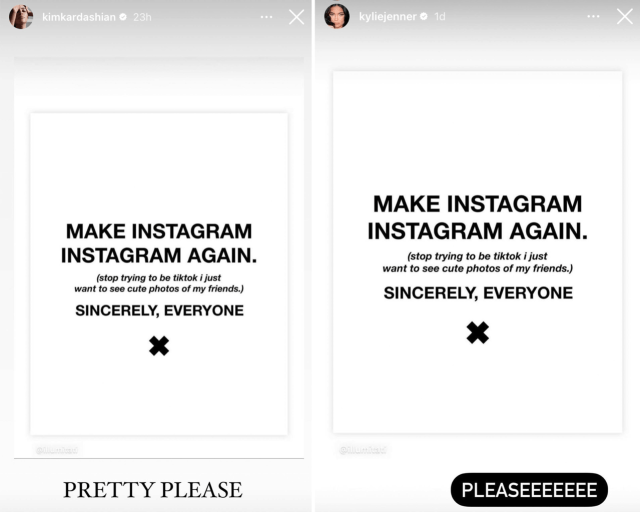Lessin's five steps and the coming AI apocalypse
I’m not really on any of the big centralised social networks any more, but I’m interested in the effect they have on society. Apparently there have been calls recently complaining about, and resisting, changes that Instagram has made.
In this post, Ben Thompson cites Sam Lessin, a former Facebook exec, who suggests we’re at step four of a five-step process.
There's a bit in this post which I think is a pretty deep insight about human behaviour, identity, and the story we like to tell ourselves. Again, it's Thompson quoting Lessin:
- The Pre-Internet ‘People Magazine’ Era
- Content from ‘your friends’ kills People Magazine
- Kardashians/Professional ‘friends’ kill real friends
- Algorithmic everyone kills Kardashians
- Next is pure-AI content which beats ‘algorithmic everyone’
I saw someone recently complaining that Facebook was recommending to them…a very crass but probably pretty hilarious video. Their indignant response [was that] “the ranking must be broken.” Here is the thing: the ranking probably isn’t broken. He probably would love that video, but the fact that in order to engage with it he would have to go proactively click makes him feel bad. He doesn’t want to see himself as the type of person that clicks on things like that, even if he would enjoy it.So TikTok and other platforms reducing the need for human interaction to deliver 'engaging' content have the capacity to fundamentally change the way we think about the world.
In another, related, post Charles Arthur scaremongers about how AI-created content will overwhelm us:
I suspect in the future there will be a premium on good, human-generated content and response, but that huge and growing amounts of the content that people watch and look at and read on content networks (“social networks” will become outdated) will be generated automatically, and the humans will be more and more happy about it.As ever, I don’t think we’re ready for this. Not even close.In its way, it sounds like the society in Fahrenheit 451 (that’s 233ºC for Europeans) though without the book burning. There’s no need: why read a book when there’s something fascinating you can watch instead?
Quite what effect this has on social warming is unclear. Possibly it accelerates polarisation, but rather like the Facebook Blenderbot, people are just segmented into their own world, and not shown things that will disturb them. Or, perhaps, they’re shown just enough to annoy them and engage them again if their attention seems to be flagging. After all, if you can generate unlimited content, you can do what you want. And as we know, what the companies who do this want is your attention, all the time.
Sources: Instagram, TikTok, and the Three Trends | Stratechery by Ben Thompson and The approaching tsunami of addictive AI-created content will overwhelm us | Social Warming by Charles Arthur
